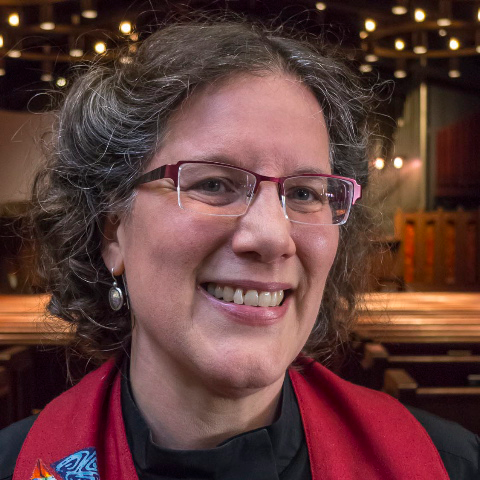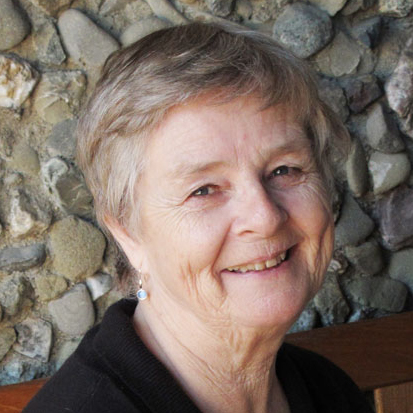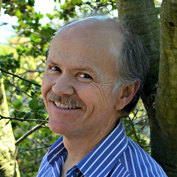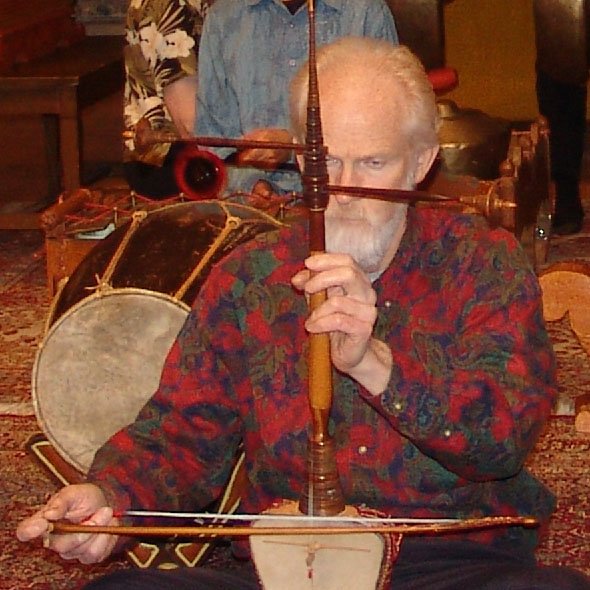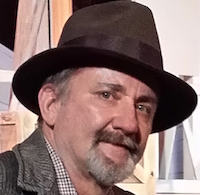{podcast_episode 204}
Deeply spiritual. Hungry for connection. Longing for ways to be of use – especially in the midst of such chaos… Isaiah responds eagerly to the call. “Here am I!” he says. “Send me!” This despite just having had seraphim – angels of the Lord – place burning hot coals on his lips to prepare him for the work before him. He did not cry or complain. Or back down from what was being asked.
THAT is the kind of spirit I like to see in volunteers. Especially those taking on the difficult and important work of religion in a confusing and troubled world.
“Here am I! Send me!” These words from Isaiah are often quoted from Christian pulpits to mobilize and inspire followers. Interestingly, what isn’t often quoted, is the next part of this scripture. The part after Isaiah boldly volunteers, where God confesses that the task he’s laying before Isaiah will be difficult and discouraging. ‘Go out and talk to the people,’ He explains. Build bridges. Connect the disconnected. Instill trust in the timid. Help the hesitant, the hurting, and the disenfranchised come together. Because I can’t speak for myself, you will carry my holy message. ‘Oh… and by the way,’ He seems to say in almost an afterthought, ‘understand that when you take this holy message to the people, they will not listen to you.”
This story is an interesting one. And a common one. The same elements in this story are in the story of Noah, the story of Moses, the Story of David, the story of Jesus. These same elements are in the story of Mohammed, Confucius, Lao Tsu, the Buddha… It’s the story of coming upon some source of the Holy… some source of the ‘Good News’ – and being so taken with the enlightened beauty and transformational power of what you found, there’s a natural impulse to share that good news with others. But you notice, the further afield you carry that Good News, the less receptive people are to hear it.
This was true for me. Fresh from seminary and my internship, I was called to serve my first church. I was a California boy (ie. one with unclean lips) – sent to serve a small church in Atlanta Georgia. I was eager. Hungry to be of use. “Here am I! I cried. Send me!”
But when I got there, the difficulty of which the passage speaks. A few days after I moved into my neighborhood, there was a knock on my door. Some of my neighbors had brought me supper to welcome me. Macaroni and Cheese – my favorite. As you know, church is big in the south so hearing that not only did I go to church but that I served a church, they got very excited. “Oh, what church?” they asked. And when I told them – and I’ll never forget this – the woman smiled demurely and said, ‘Well of course you do, bless your heart.’ But neither she – nor anyone else, ever brought any more macaroni and cheese.
<><><>
How many people have been part of conversations like that? Where you felt the earnest impulse for something connecting and unifying and had your good news cut down by snarkiness or judgment? And the hardest part, sometimes, is when that little bit of good news that you were carrying was the real spark offering you your main sense of joy – keeping you alive. Feeling a faint spark of hope and eager to share it… but when someone cuts you down it’s hard to know where to turn.
There is an old story about such a person – a young man – who’d once had such a spark, but was now standing on a bridge spanning across a rocky gorge below. At the edge, between the cables, he thought about all the judgment and division in the world and he thought about jumping. An elderly man who happened to be walking the bridge saw him. Seeing what the young man was considering, he became alarmed and rushed to him.
“Stop! don’t do it!” came the cry.
“Why shouldn’t I?” the younger man wailed.
“Can’t you see? There’s so much to live for!” cried the elder in response.
“Like what?” the younger moaned.
“Well…are you religious or atheist?”
“Religious,” he sighed.
“Me too!” cried the elder. “Are you Western or Eastern?”
“Western,” replied the young man.
“Me too!” said the elder. “Are you Christian or Jewish?”
“Christian.”
“Me too!” cried the elder. “Are you Catholic or Protestant?”
“Protestant.”
“Me too!” cried the older. “Are you Episcopalian or Baptist?”
“Baptist!”
“Wow! Me too! Are you Baptist church of God or Baptist church of the Lord?”
“Baptist Church of God!”
“Me too! Are you original Baptist Church of God, or are you Reformed Baptist Church of God?”
“Reformed Baptist Church of God!” the younger said, beginning to smile.
“Me too! Are you Reformed Baptist Church of God, reformation of 1879, or Reformed Baptist Church of God, reformation of 1915?”
Now almost giddy, the younger exclaimed “Reformed Baptist Church of God, reformation of 1915!”
The older man looked shocked and screamed, “Die, heretic scum,” and pushed him off the bridge.
It’s funny… But it’s also not so funny because it’s so true. We live in a world of people who have learned how to make a million little distinctions about what is going to save us. What will keep us safe. And we allow all those distinctions to cover up our joy. And get in the way of us sharing our joy.
Does anyone know how many different denominations there are in the world? According to the World Christian Encyclopedia published by Oxford University Press, there are over 39,000 different denominations in the world today – not churches – but denominations of multiple churches – 39,000! And nearly 34,000 of those are Christian denominations. Each one of them is separated from the others by some unbridgeable disagreement over God or ritual or sacrament or which prayer to use or which church doctrine to follow…
‘Religion’ is a Latin word. It’s the joining of two words: ‘Re’ which means, ‘again.’ And ‘ligare,’ which is the root of our word for ‘ligament’ and means ‘to bind together…’ ‘to join together that which has been divided.’ ‘To bind together what has been broken and make it whole.’ How ironic that it is the name for something most of us experience as more dividing than unifying. And it continues. Today, 270 new denominations emerge out of disagreement every year – that’s five new denominations a week!
I believe that this phenomenon is what is prompting so many people to go it alone. In the last thirty years a great wave of people have emerged in our culture who call themselves SBNRs – ‘Spiritual But Not Religious.’ Their growing presence is revealed in the recent results of the US census where it asks for ‘religious affiliation. Numbers show a dramatic increase in ‘Nones’ – as in, ‘None of the Above.’ What was 6% of the US population in 1980 became 12% in 2000 and 24% in 2010.
This indicates that people are going freelance… out on their own. But I don’t think it means that they have lost the spiritual impulse. And by that, I don’t mean a belief in God… I just mean a belief that we are all connected… that we are all part of something larger… part of the interdependent web of existence. It’s just that sharing it can invoke so much alarm and judgment.
Half a dozen years ago, I taught a class which tried to explore this. It was a class that tried to get UUs together to talk about our theology. Our Good News. Twelve of us got together to try and name what we believed about God and religion. Initially, many expressed excitement about doing this with other ‘like-minded’ people. But when it came time to actually naming our personal understanding of God, we quickly devolved into our own “RED hat – BLUE hat” discussion. And we did agree on one thing – that when it came to God, there was nothing ‘like-minded’ about us. But then we tried one exercise that changed everything.
We took turns offering statements about God where the only requirement was to say, ‘And’ before each statement. I was so impressed with what we came up with that I sent it around to some colleagues. And they were impressed – and asked if they could add a few understandings of their own. I’d like to read you the list we came up with:
God is love
And God is an internal spark
And God is the cosmic heart beat
And God is the Space between the notes in music
And God is a universal force not involved in human affairs
And God is possibility after possibility unfolding
And God is daffodils in the spring – thousands of them
And God is reality
And God is imagination
And God is truth when it comes
And God is justice when it happens
And God is the holding of breath just before justice happens
And God does not fit in any box
And God is within me
And God can never be defined because that would be too limiting
And God is everything we cannot possibly imagine
And God is a woman
And God has no gender
And God is a black, lesbian, divorced woman in her mid fifties who lives with her cats
And God is no one to mess with
And God is a holy mystery
And God is here
And God is not here
And God is things as they are waiting to be discovered
And God is the most frustrating and unnamable of realities I’ve ever imagined
And God is in both the laughter and the tears
And God is the blending of all things
And God is a word created by man to project his own image
And God is evolving
And God is one
It’s a powerful list. But to tell you the truth, the most powerful part about it – are all the ‘Ands’ in between the statements. The simple way all our truths became joining and additive. The simple way that, when joined together, they become a prayer.
Too often we get so emphatic about what God ISN’T – we tie ourselves up in ‘NOTS.’ “God is NOT this… God is NOT that.” Our theological conversations – even in these loving and tolerant UU communities – become a litany of rebuttals. And you can often identify a rebuttal of someone’s personal understanding because the first word of response is ‘BUT.’
During the class, we talked about how antagonistic and divisive this feels. How hungry people are for unity. How they come to churches seeking connection and belonging and yet too often we show them our BUTs. And they begin to believe that churches are simply places people go to BUT heads. And they mentioned how they sometimes see the minister as the chief BUT-head.
If we look around churches today – including Unitarian Universalist Churches – it’s not hard to see their point. We often get caught up in abstract distinctions. In needing to ‘be right.’ And we lose sight of our need to be connected. And healed. And whole. And connected.
One of the things the class concluded is that one of the most important parts of being religious – of being spiritual – is learning to Love beyond belief. Learning to Love Beyond Belief.
And there was one more thing we learned that came from a story that I shared with the class. It was the true story of a young man who felt called to know God. And so he enrolled in seminary. But while he was in seminary he was stricken with a form of polio that was taking away his use of his legs. Wrestling deeply with this he heard a voice asking him to pronounce the good news – but not by learning theology. By learning to dance. He wanted to see what his legs could really do. So he quit divinity school and began to dance. And miraculously, he not only overcame polio and regained the use of his legs, but he went on to become one of the fathers of modern dance.
This is the story of Ted Shawn who revolutionized dance in the 20s and 30s. He concluded, after it was all over, that it was not studying God that healed him. It was embodying God that healed him.
It’s this story that helps me understand why I am not one of those Spiritual But Not Religious people who are content to find God in sunsets. It’s not that I don’t see God in sunsets. It’s just that I want more than the finding. I want the sharing as well.
If God is Love, or Beauty, or Joy or Purpose, or Meaning… it is not enough for me to stand before a sunset and let Love or Meaning come into me. I want Love and Meaning to move through me. I want to be some useful part of Love and Meaning finding it’s rightful place in the world.
I believe a church – a good church – is the kind of place that teaches its people how Love can move through you – regardless of your beliefs. To stop tying ourselves in Nots and placing our Buts in the way.
One of the best outcomes of that class I taught were the t-shirts we ended up making that had the picture of our church with the words, “Does this church make my BUT look too big?”
Friends, like Isaiah, we are being called into conversations that are difficult – but too important to avoid. It is time to put away the alligators and tear down the walls. It is time to create a safe community to seek and serve Love and Meaning. It is time to extend our ANDs and walk together.
And on our way, we will pray:
Oh Elusive God of our understanding, help us embody your invitation for holy conversations. Help us find the connections that elude us. Let go of the fear that divides us and build the Love that will save us. And all the while, help us look upon one another and all our differences and say, “Amen.”
Copyright © 2014, Rev. Greg S. Ward. All Rights Reserved.







